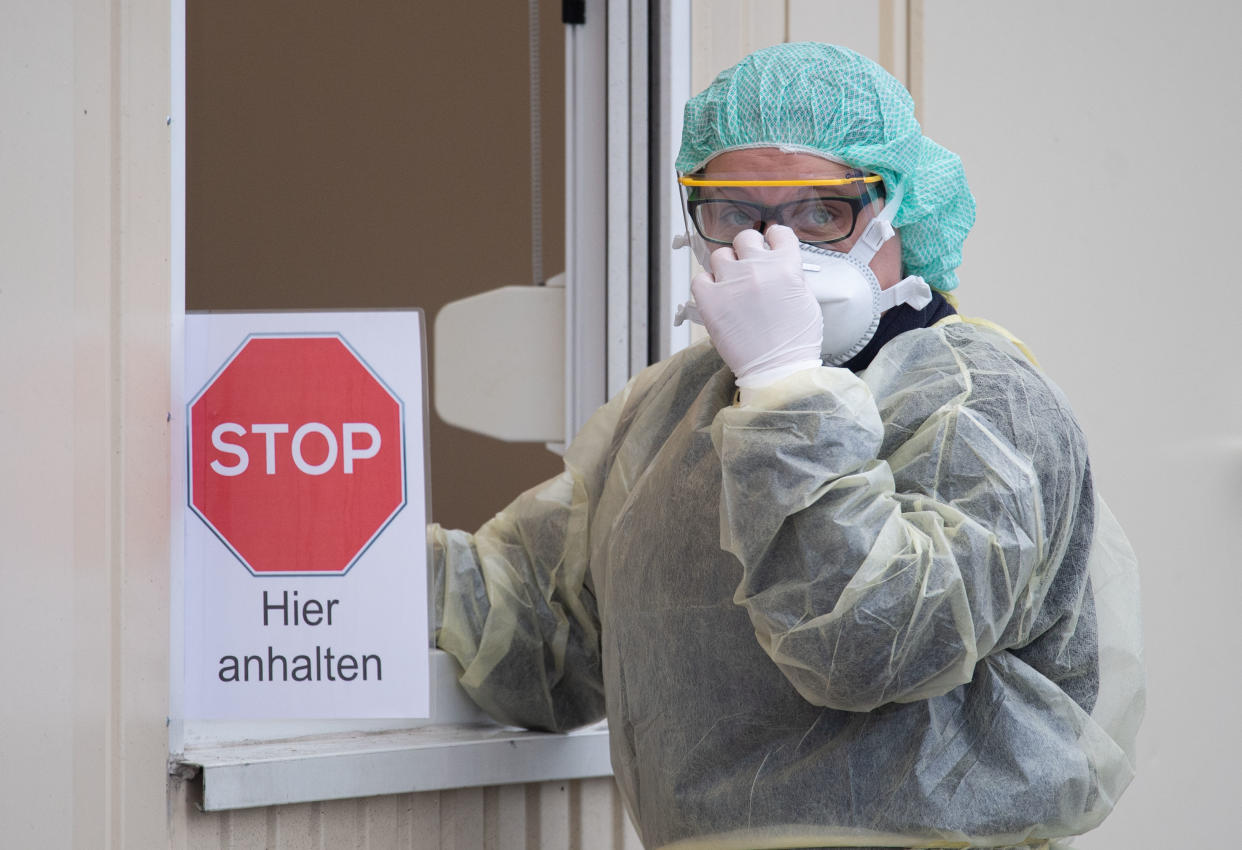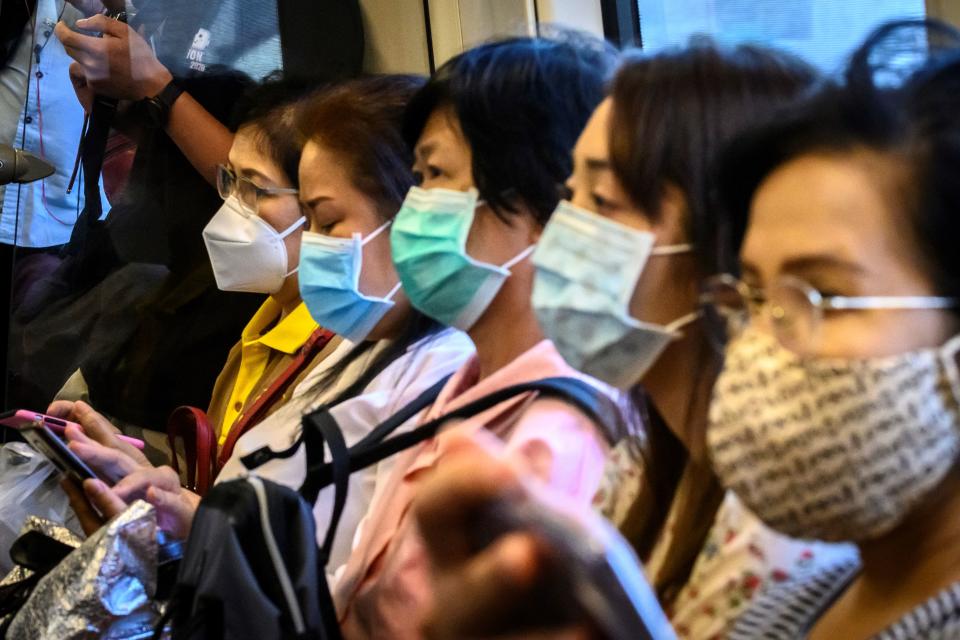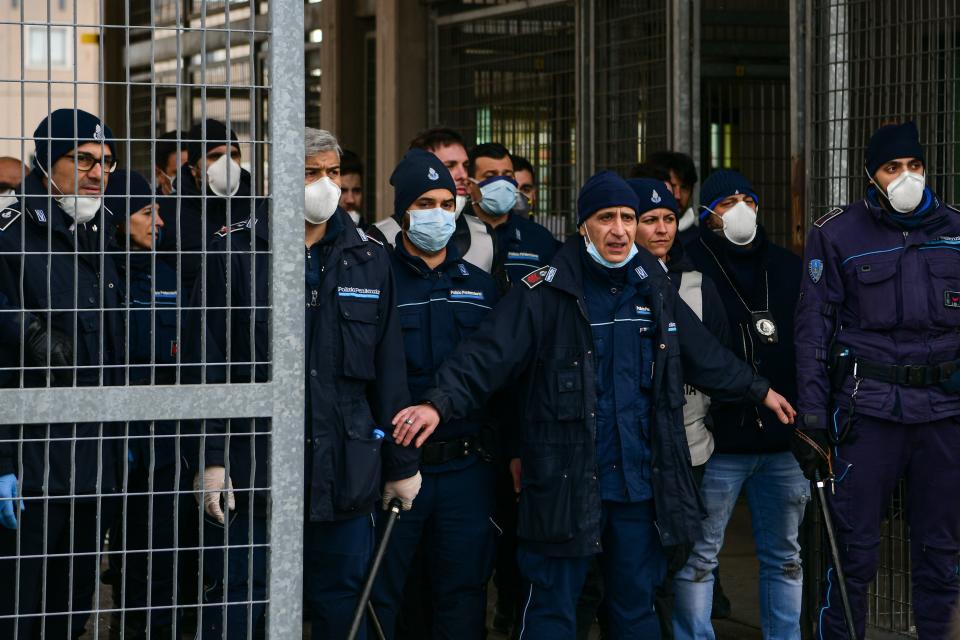Questions doctors are being asked about the coronavirus

The new coronavirus is making headlines all over the world, with news of health services under strain, stock markets plummeting and entire cities on “lockdown”.
Since it emerged at a seafood and live animal market in the Chinese city Wuhan at the end of last year, more than 111,000 cases of Covid-19 been reported globally, according to John Hopkins University data.
While it may sound alarming, over 62,000 of these patients have “recovered”, with four out of five cases thought to be mild.
Read more: Should we be concerned by the ‘second strain of coronavirus’?
Nonetheless, the global death toll is approaching 4,000.
In the UK, 280 patients had been identified on Monday, with four Britons having succumbed to the infection to date.
Concern over the somewhat mysterious virus is prompting paranoid patients to turn to their doctor for advice.
Yahoo UK asked medics from around the country the most common questions they are facing.

Mainland China is still the epicentre of the outbreak, with more than 80,700 confirmed cases being reported across every province.
Incidences there have been tailing off since the end of February, however, with just 40 new cases being identified overnight – the lowest since reporting began at the start of the year.
While the situation appears to have “peaked” in China, the virus has now crossed national borders into more than 100 countries, with every inhabited continent noting cases.
Eighteen of those countries, however, have only one confirmed patient.
Questions doctors are being asked about the coronavirus
Should I be worried about the coronavirus Covid-19?
There is no straight answer to this one.
The World Health Organization (WHO) has declared the infection a “public health emergency of international concern”, the highest alarm it can sound.
This is only the sixth time a global emergency has been declared since the concept came about in 2005, putting Covid-19 alongside Zika and Ebola.
In the UK, chief medical officers have raised the risk to the public from low to moderate.
While this likely does little to reassure you, data of the first 44,000 reported cases in China revealed that 80.9% were mild, 13.8% severe and just 4.7% critical.
The vast majority of fatalities are occurring in the elderly or otherwise ill, such as those with diabetes or asthma.
Read more: Dog tests 'weak positive' for coronavirus – but experts 'doubt it could spread to humans'
With the strain virtually unheard of a little over two months ago, there is much experts do not know about Covid-19, including its death rate.
On 3 March, the WHO announced that 3.4% of confirmed patients had died worldwide, considerably higher than the previous estimate of 2%.
Experts were quick to point out this was likely an “overestimate”, with a 1% fatality rate seeming more “reasonable”.
Covid-19 tends to cause flu-like symptoms initially, such as fever, cough and breathlessness.
With the northern hemisphere still in cold and flu season, people may start panicking every time they get the sniffles.
Officials urge people in the UK to call the non-emergency NHS number 111 if they suspect they could have coronavirus, have been in close contact with a confirmed patient or have been to a high-risk area in the past 14 days.
Should I wear a mask to ward off the coronavirus?
Covid-19’s main route of transmission is face-to-face via infected droplets coughed or sneezed out by a patient.
It enters the body via the eyes, nose or mouth.
Masks may therefore sound plausible; however, they do not fully seal the nose or mouth and rarely cover the eyes.
Although studies suggest masks prevent hospital staff catching infections, they are often worn alongside goggles and protective gear in a regularly disinfected building.
The surgical mask N95 respirator filters “at least 95% of airborne particles”.
It supposedly filters particles as small as 0.3 microns (0.0003mm).
Coronaviruses are on average a little over 0.1 micron (0.0001mm) and could therefore theoretically get through.
While masks may seem harmless, many find N95 respirators uncomfortable and complain of difficulty breathing.
Some may also fail to keep them on.
Professor Jonathan Ball, from the University of Nottingham, previously told the BBC: “It's quite a challenge to keep a mask on for prolonged periods of time.”
Read more: England's top doctor expects the coronavirus to ‘peak’ in ‘two-to-three months’
Well-meaning people could also still get infected if their hands become contaminated while taking the mask off.
It is unclear if Covid-19 can survive on fabric, but cold and flu viruses can linger on such materials for up to eight hours.
“Face masks play a very important role in clinical settings, such as hospitals,” Dr Jake Dunning from Public Health England told the BBC.
“However, there is very little evidence of widespread benefit from their use outside of these clinical settings.”
Nevertheless, the US Centers for Disease Control and Prevention recommends those with coronavirus “wear a face mask when in the same room with other people and when they visit a healthcare provider.
“If they cannot wear a face mask, the people who live with them should wear one while they are in the same room.”
The WHO says people “only need to wear a mask if they are taking care of a person with suspected infection”, or if they are coughing or sneezing themselves.
It claims masks are “effective only when used in combination with frequent hand-cleaning with alcohol-based hand rub or soap and water”.

How can I reduce my risk of catching Covid-19?
Covid-19 has no specific antiviral treatment, with hospitalised patients being given “supportive care” while their immune system works to fight off the virus.
This makes prevention all the more important.
Regular handwashing is thought to be the most effective way to stay virus-free.
Officials recommend giving hands a good scrub after using public transport or coming into contact with a suspected patient.
Hands should also be “clean” before preparing food, as well as after using the toilet or being near animals.
The drying process is also important, with wet hands transmitting viruses more readily.
When out and about, hand sanitisers are effective if made up of at least 60% alcohol.
“Social distancing” is also recommended, with one expert advising we keep a two-metre (6.5ft) space between us and a potential patient.
What plans do hospitals having in place to cope with the coronavirus?
While this may not be on everyone’s lips, those with a hospital appointment in the diary could be anxious they will become ill while trying to get better.
One doctor reassured Yahoo UK suspected patients are being tested for the virus.
Isolation units are reportedly also in place in A&E units, with staff wearing protective gear to keep themselves, and patients, safe.
Hospitals are also in contact with the Department of Health for up-to-date advice on how to isolate and treat patients.
“It’s not new ground for us really,” a rheumatologist from Leeds told Yahoo UK.
“A lot of the procedures are the same for severe acute respiratory syndrome (Sars) and Middle East respiratory syndrome (Mers).”
Covid-19 is one of seven strains of the coronavirus class that are known to infect humans.
Others include Sars – which killed 774 people during its 2002/3 outbreak, and Mers – which killed 858 people in 2012.



